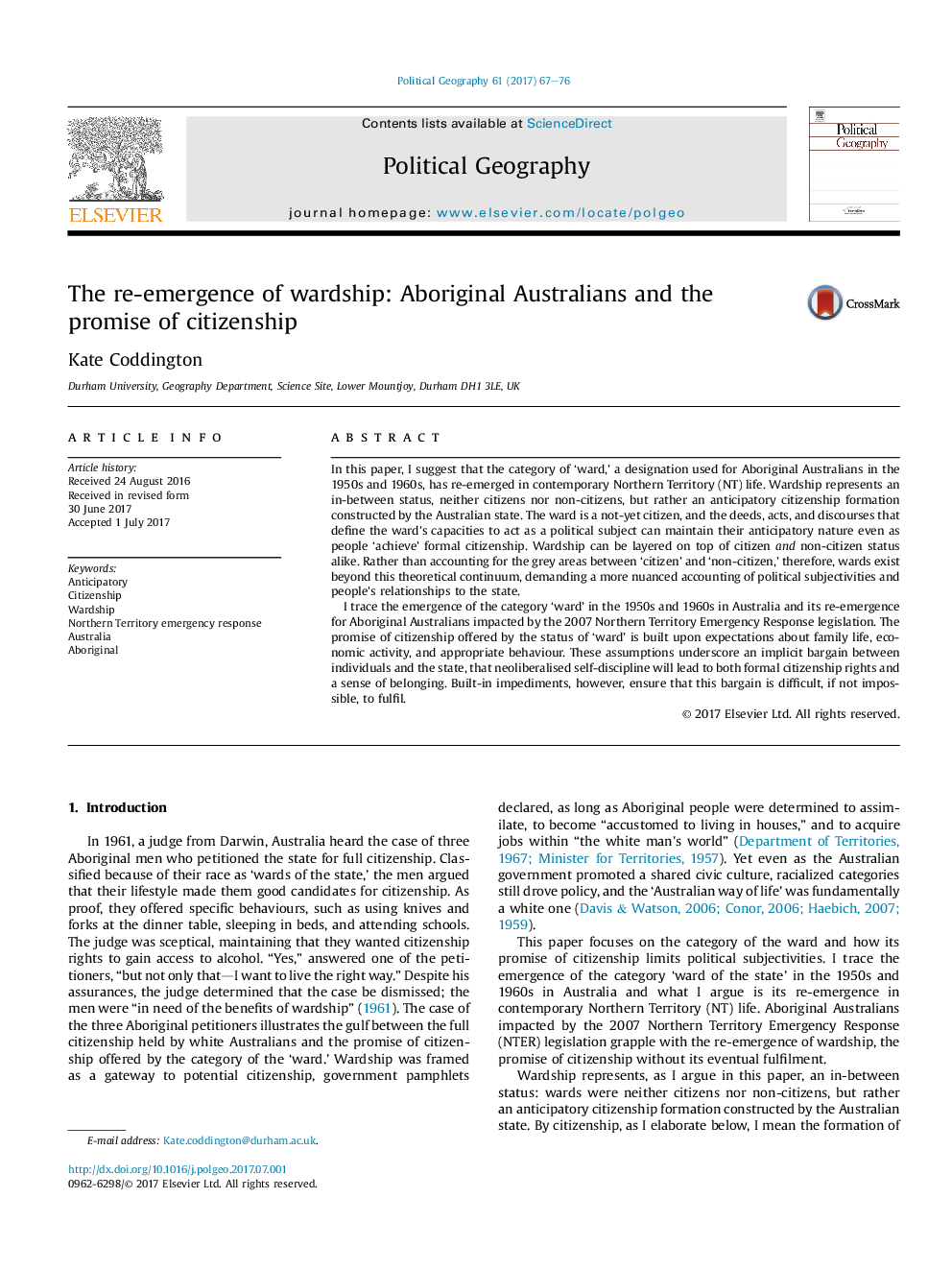| کد مقاله | کد نشریه | سال انتشار | مقاله انگلیسی | نسخه تمام متن |
|---|---|---|---|---|
| 5118430 | 1485571 | 2017 | 10 صفحه PDF | دانلود رایگان |
- Aboriginal Australians were designated as wards of the state in the 1950s-60s.
- The ward of the state represents a form of anticipatory citizenship.
- Wards' family life, economic activity, and behaviour are scrutinized by the state.
- The ward has reemerged as part of the 2007 Northern Territory Emergency Response.
- Today, neoliberalised self-discipline is promised to lead to citizenship rights.
In this paper, I suggest that the category of 'ward,' a designation used for Aboriginal Australians in the 1950s and 1960s, has re-emerged in contemporary Northern Territory (NT) life. Wardship represents an in-between status, neither citizens nor non-citizens, but rather an anticipatory citizenship formation constructed by the Australian state. The ward is a not-yet citizen, and the deeds, acts, and discourses that define the ward's capacities to act as a political subject can maintain their anticipatory nature even as people 'achieve' formal citizenship. Wardship can be layered on top of citizen and non-citizen status alike. Rather than accounting for the grey areas between 'citizen' and 'non-citizen,' therefore, wards exist beyond this theoretical continuum, demanding a more nuanced accounting of political subjectivities and people's relationships to the state.I trace the emergence of the category 'ward' in the 1950s and 1960s in Australia and its re-emergence for Aboriginal Australians impacted by the 2007 Northern Territory Emergency Response legislation. The promise of citizenship offered by the status of 'ward' is built upon expectations about family life, economic activity, and appropriate behaviour. These assumptions underscore an implicit bargain between individuals and the state, that neoliberalised self-discipline will lead to both formal citizenship rights and a sense of belonging. Built-in impediments, however, ensure that this bargain is difficult, if not impossible, to fulfil.
Journal: Political Geography - Volume 61, November 2017, Pages 67-76
